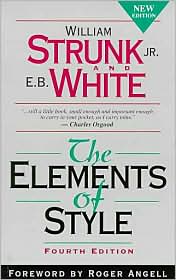From the New York Times:
Zimbabweans expected to be rounded up and taken to the polls. If they are
unable to read or do not understand how to vote, according to a journalist in
the state-owned news media, they will be “assisted” by a police officer who has
already voted publicly in front of a senior officer, as apparently all members
of the armed forces are required to do.
Zimbabwe has been besieged by violence since March 29, when opposition leader Morgan Tsvangirai defeated President Robert Mugabe in the general election by a margin of 47.9 percent to 43.2 percent. Because neither candidate received the “50 percent plus one vote” constitutional requirement to be declared the winner outright, the Zimbabwean Election Commission called for today’s runoff election.
Through a systematic and escalating series of beatings and murders in the last couple of months – the body count is up to 86, with thousands having been beaten – Mugabe’s supporters have greatly increased the odds of Mugabe winning the runoff election. For one thing, they have ensured that Mugabe is unopposed, which should make it easier for him to achieve the democratic mandate of greater than fifty percent of the vote. (Tsvangirai withdrew his candidacy on Sunday, retreating in fear to the Dutch Embassy.) If that were not enough to tip the scale, they are now forcing citizens to participate in the formality by actually checking off the sole box on the ballot, almost literally with guns pressed to their temples.
Naturally, this is a grotesque and obvious farce that is fooling no one (or lest I neglect some of the modern intelligentsia, let me instead say it is fooling almost no one). In only the most superficial sense is this “democracy” in action. Nevertheless, I maintain that it highlights the dreadful error of substituting freedom with democracy. All Mugabe has to do to maintain power is to provide enough democracy to be construed as a mandate representing “the will of the people.” Freedom and liberty never enter the conversation.
It would be foolish to label Mugabe as undemocratic and to think that he simply doesn’t understand democracy. On the contrary, I think Mugabe understands democracy perfectly, and in particular, he understands exactly how the commitment to democracy of today’s intellectuals paralyzes them in opposing dictatorships. This is his best move.
There is hue and cry, of course. Ministers from the Group of Eight industrialized nations questioned the legitimacy of the election, insisting that they would not respect a vote that did not represent the “will of the people.” The UN Security Council condemned the violence saying that it has “made it impossible for a free and fair election to take place on 27 June.”
Yet despite all this, Mugabe and his henchmen persist in perpetuating the charade. Why would they bother? Obviously they are calculating a benefit from pretending to have an election. They know that they have probably crossed the line a bit – with the murders and terrorism, for instance – but they also know that going through the motions of holding the election will pay dividends in the end.
The advocates of democracy have no intellectual defense to counter Mugabe’s thuggery. What they demand, literally, is that the “will of the people” be served. They can mumble about human rights violations, but in the end, the “right” that is demanded is the collective “right to self-determination.” So, if Zimbabweans go to the polls and vote themselves into a dictatorship (like Iraqis who elected Saddam Hussein in a landslide and the Palestinians who voted overwhelmingly for Hamas in January), then all is well. True, at the moment, the election is strongly contested across the world, but all Mugabe has to do is some damage control. In the coming weeks and months, the fact that Zimbabwe held an election today, however farcical it was, will greatly help diplomats, politicians, and the media to pretend that Zimbabweans are well served in the end.
P.S. By the end of the day, it appeared that despite the threats, participation at the polls was relatively light. Incidentally, the title of this post refers to the red ink that was used to mark the fingers of Zimbabweans who had showed up at the polls. Citizens without marked fingers were in danger of retribution.







